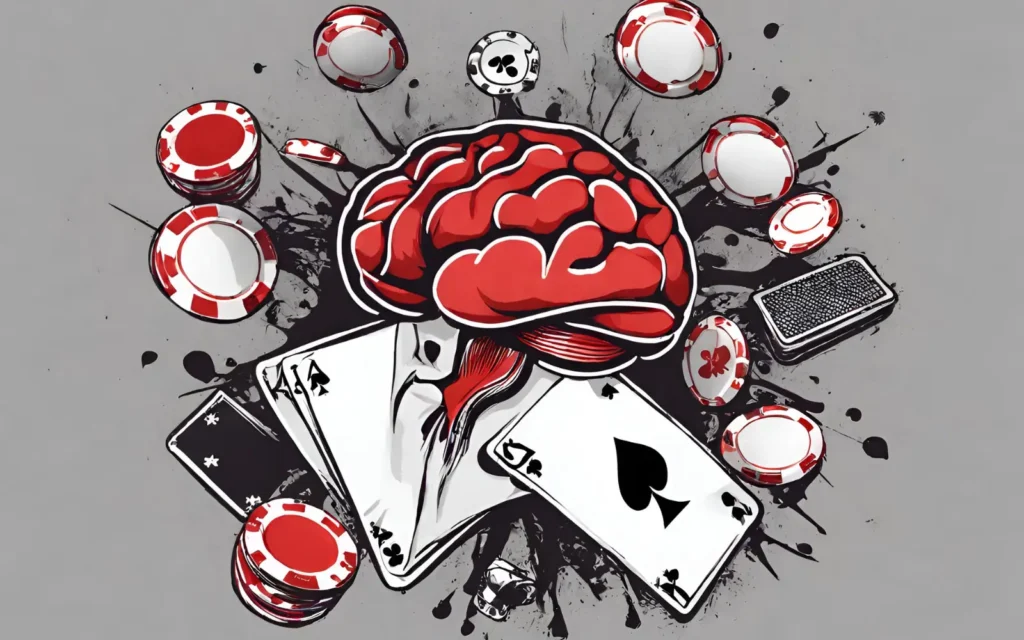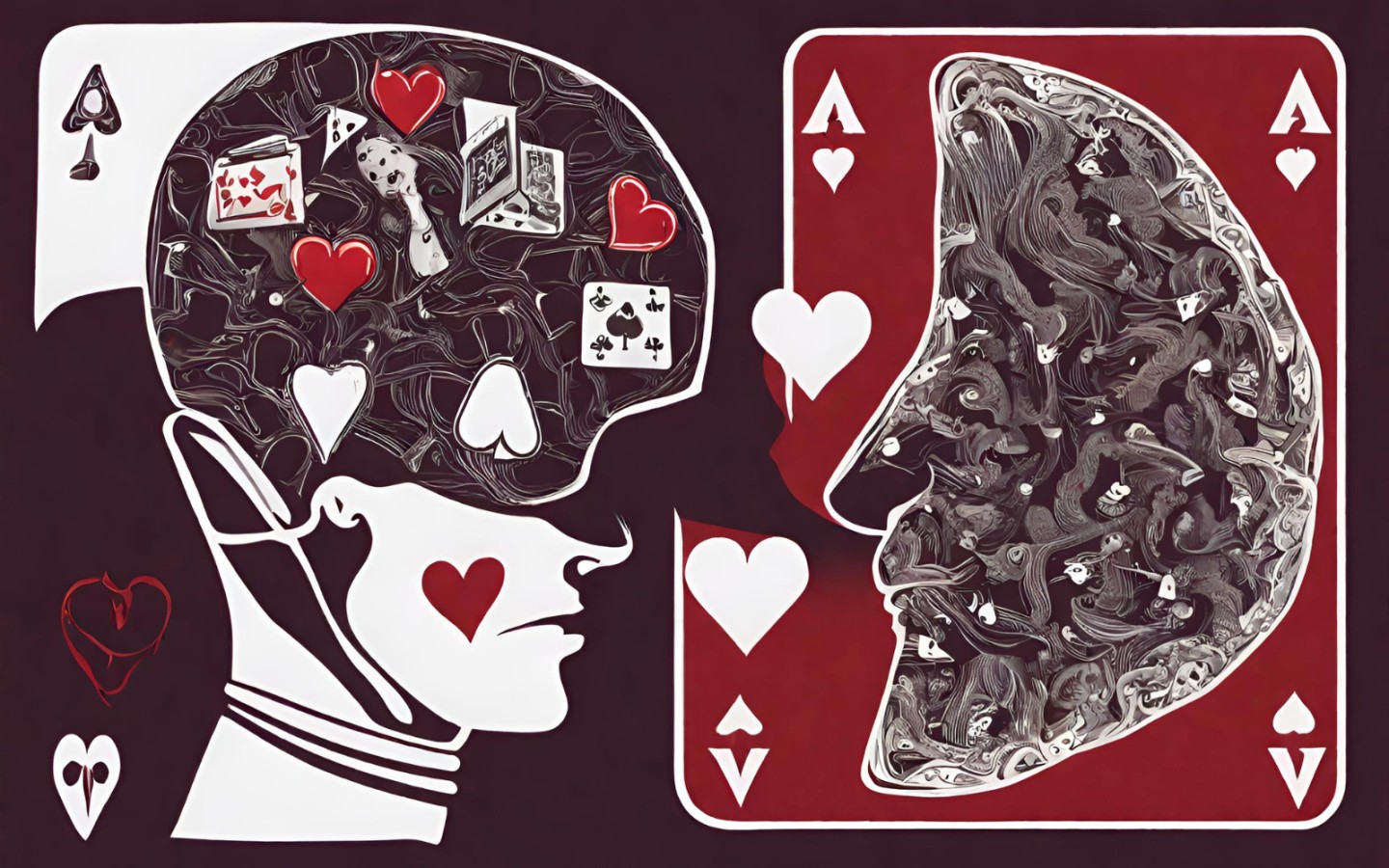Poker isn’t just about cards and chips – it’s a representation of life itself. The strategies, mind games, and emotional resilience you need to conquer the poker psychology on table are surprisingly similar to the skills that can help you navigate life’s ups and downs.
Poker Psychology Tips for Life
Life, like poker, presents us with a series of choices, uncertainties, and outcomes. Just as in poker, we must navigate through unpredictability, manage our emotions, and make decisions with imperfect information. Let’s start by examining some fundamental principles of poker psychology and how they apply to our everyday lives.
Let’s delve into some key psychology in poker concepts and see how they translate into powerful life lessons:
1. Reading “Tells”
- Poker: In poker, a ‘tell’ is a subtle body language cue or behavioral pattern that hints at a player’s hand strength. Expert players observe their opponent’s posture, breathing, even the way they bet, to gain an edge.
- Life: Life is full of “tells” too! People’s facial expressions, tone of voice, or even their hesitation before answering a question can reveal their true thoughts and feelings. Paying attention to these signals helps you understand others better, potentially avoid misunderstandings, and build stronger relationships.
Think About It: Can you recall a life situation where you “read” someone’s signals correctly? Maybe it was a job interview or a tricky negotiation?
2. Managing Tilt
- Poker: “Tilt” is an emotional storm, often caused by frustration or bad luck. Players on tilt make rash, illogical decisions, costing them dearly. Keeping your cool is paramount for success.
- Life: Everyone experiences moments that could send them into a spiral of anger, sadness, or impulsiveness. Recognizing these triggers, whether it’s traffic jams or difficult people, lets you develop coping mechanisms. Deep breathing, mindfulness, even taking a short break, can all help you manage your emotions and make better choices.
Reflect: What are your personal “tilt” triggers? How can you better manage your emotions the next time you encounter them?

3. The Power of Bluffs
- Poker To win at poker, sometimes you have to bluff – project confidence even when your hand is weak. Done well, it can force your opponents to fold and win you the pot.
- Life: There are times in life when a calculated display of confidence can help you achieve your goals. A job interview, a salary negotiation, or even putting yourself out there socially – sometimes, a little well-placed bluffing can help things go your way. Remember, it’s about calculated risks, not deception.
Consider: Are there areas of your life where a touch of strategic “bluffing” might be beneficial?
4. Accepting Variance
- Poker: Even skilled poker players go through losing streaks – that’s the nature of the game. You can’t control the cards you’re dealt, but you can control how you play them.
- Life: Life throws its share of curveballs. Unexpected events, setbacks, and disappointments are inevitable. The key is to focus on the things within your control, adapt your strategy, and remember that even the toughest hands can sometimes turn out to be winners with patience.
Question: Can you think of a time when life dealt you a seemingly “bad hand”, but you managed to persevere and still find success or new lessons along the way?
Revealing the Psychology of Poker Players
The world is a complex poker table, full of hidden information, strategic gambles, and emotional swings. By mastering the mental game at the felt, you’re unknowingly developing crucial life skills. Remember, the journey is often more important than the hand.
As we conclude our exploration of psychology of poker players and its parallels with life, remember that both poker and existence are journeys filled with challenges, triumphs, and opportunities for growth. By applying the principles of sports psychology in poker to our everyday lives, we can navigate the complexities of existence with greater insight, resilience, and purpose.
Thank you for joining me on this interactive journey. I encourage you to continue exploring the intersections between poker and life, discovering new insights and perspectives along the way. Until next time, may your decisions be calculated, your emotions balanced, and your cards ever in your favor.









Wow. Never thought there would be experts in my favorite game. I want to learn more about how to use prediction and decision making for psychology of poker.
this is good psychological analogy of life and game of poker.
Great information, Thanks for sharing your brilliant tips